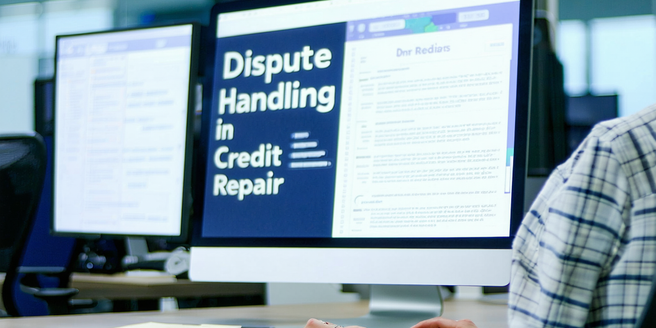Understanding Credit Repair Services
| Service Type | Description | Average Cost |
| Credit Audit | Detailed analysis of credit report | $50-$150 |
| Dispute Handling | Managing disputes on inaccurate entries | $70-$200 |
| Credit Monitoring | Regular updates on credit status | $9.99/month |
| Identity Theft Protection | Safeguarding against identity theft | $19.99/month |
| Score Improvement | Targeted strategies to boost score | $99/session |
| Educational Resources | Guides and tips for credit health | Free-$50 |
Key Features to Look for in a Credit Repair Company
When selecting a credit repair company, it’s essential to consider several pivotal features that indicate reliability and efficiency. Firstly, look for a company offering a comprehensive suite of services, such as credit audits and dispute handling. Transparency in operations is vital; companies should provide clear terms of service and fee structures. Investigate their track record by reading reviews and testimonials that highlight customer satisfaction. A reputable credit repair company will also offer educational resources, helping clients understand the credit repair process. This empowers clients and aids in preventing future credit issues. Lastly, ensure they have a reliable customer support system. Prompt and helpful responses to queries can make a significant difference in your credit repair journey. Choosing a company with these features can streamline the process, minimize stress, and enhance success in restoring your credit health.
Common Credit Repair Scams to Avoid
As you embark on repairing your credit, beware of scams that can compromise your financial well-being. One of the most common scams involves promises of instantly boosting your credit score. Legitimate credit repair takes time and effort and any company claiming overnight success is likely deceptive. Be cautious of companies requiring upfront payments before rendering any services; federal law prohibits credit repair companies from demanding payment before services are completed. Another red flag is a company that advises you to dispute accurate information on your credit report. This practice is not only unethical but can also lead to legal troubles. Always steer clear of companies that fail to provide a contract detailing the services they will perform and what you are expected to pay. Engaging with transparent and honest credit repair companies will protect you from these common scams and ensure a legitimate path to credit recovery.
How to Verify a Company’s Reputation
When choosing a credit repair company, verifying their reputation is crucial to avoid potential scams and ensure effective service. Start by examining their standing with the Better Business Bureau (BBB). A high BBB rating coupled with positive customer reviews can indicate trustworthy service. Next, check for any legal actions taken against the company; a history of lawsuits is a significant warning sign. Engage with online forums and client testimonials for firsthand accounts of experiences with the company. If possible, reach out to people who have used their services to gain insight into their service quality and effectiveness. Additionally, review the company’s transparency in their terms. Any hesitancy to share details should be considered a red flag. Lastly, confirm their compliance with the Credit Repair Organizations Act (CROA), which protects clients’ rights. By thoroughly vetting a company’s reputation, you safeguard yourself from fraud and ensure the success of your credit repair journey.
Assessing the Cost of Credit Repair Services
Understanding the cost structures of credit repair services is vital for budgeting and ensuring that you get value for your money. Typically, services can range from a few hundred to a few thousand dollars, depending on the complexity of your credit issues and the services you need. Some companies charge a one-time fee, while others operate on a monthly payment plan. It’s essential to be wary of prices that seem too good to be true, as they may indicate subpar services or potential scams. A legitimate company should provide a detailed breakdown of costs without hidden fees and clearly stated payment terms. Additionally, many credible firms offer free initial consultations, which can help you understand the costs relative to your specific credit situation. It’s crucial to balance cost with the quality and scope of services provided to make an informed decision that supports effective credit repair.
Evaluating Customer Service and Support
Customer service and support play a vital role in the credit repair process. As a client, you deserve a service that communicates clearly, answers questions promptly, and updates you regularly on your case’s progress. When evaluating a company’s customer service, consider their accessibility; good companies offer multiple ways to get in touch, such as phone, email, and chat support. Pay attention to how they handle your initial inquiries, as this is often indicative of the support you will receive throughout your engagement with them. A company with dedicated account representatives can provide a more personalized service and better manage your credit repair needs. Look for reviews or testimonials highlighting their customer service experiences. Professional, responsive, and courteous support can make a significant difference in reducing stress and ensuring a smoother experience during your credit repair journey.
Analyzing Success Rates and Testimonials
When evaluating credit repair companies, consider their success rates and customer testimonials to gauge their effectiveness. A high success rate is often an indicator of a company’s proficiency in improving credit scores and removing negative information. Companies should be transparent about their success rates, and this information should align clearly with testimonials from past clients. Positive testimonials that detail personalized experiences can offer insights into a company’s customer service and overall satisfaction levels. It’s wise to be cautious, however, of companies that promise guaranteed results or have overwhelmingly positive reviews that seem too good to be true, as these might be fabricated. Instead, focus on realistic testimonials that highlight both the strengths and areas for improvement, as these typically give a genuine view of the company’s capabilities. A balanced combination of success metrics and authentic reviews can guide you in selecting a trustworthy and effective credit repair service.
Legal Considerations in Credit Repair
When dealing with credit repair, it is essential to be aware of the legal framework that governs this industry. The Credit Repair Organizations Act (CROA) is a federal law designed to protect consumers from deceptive practices in credit repair. This act mandates that credit repair companies provide a detailed contract outlining the services they will provide, your rights as a customer, and how you can cancel without penalty. It also prohibits making misleading claims or charging upfront fees. Being informed about CROA ensures you can identify and avoid fraudulent companies. Additionally, consumers should be aware of their rights under the Fair Credit Reporting Act (FCRA), which allows you to dispute inaccurate information on your credit report directly. Knowing these legal protections empowers you to make informed decisions and ensures that your rights are respected throughout the credit repair process.
Comparing DIY vs. Professional Credit Repair
Credit repair can be approached in two ways: through DIY methods or by hiring professional services. DIY credit repair involves obtaining your credit report, identifying inaccuracies, and disputing them directly with credit bureaus. This approach is cost-effective and offers you full control over the process. However, it requires a deep understanding of credit laws and can be time-consuming. Professional services, on the other hand, provide expert knowledge and handle disputes on your behalf. They can be beneficial if you lack the time or expertise to manage the process alone but do come with costs that vary by service provider. Weighing the benefits and drawbacks of each approach can help you decide the best course of action. Consider factors such as the complexity of your credit issues, your financial capacity, and your comfort with legal documents, as these will influence the effectiveness of either approach in repairing your credit.
Making an Informed Decision in Choosing a Service
Choosing the right credit repair service requires careful consideration and thorough research. Start by identifying your specific credit repair needs and the type of services you require. Use this to evaluate potential companies based on their expertise, service offerings, and pricing structure. It’s crucial to read reviews and seek recommendations from credible sources to get an idea of the company’s reputation and customer satisfaction. Verify their compliance with CROA and check for any red flags, such as unclear contract terms or upfront payment demands. Consider reaching out to multiple companies to compare their offers and gauge their customer service standards through your interactions. By systematically assessing these factors, you can make a decision that best aligns with your credit goals and financial situation, ensuring you choose a service that effectively contributes to improving your credit score.



